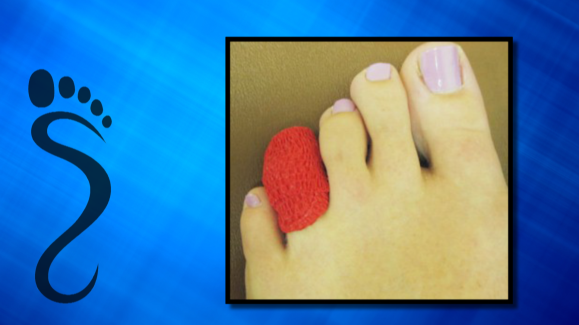 Margaret Abbott, a general practitioner (GP) at the Windmill Practice in Sneinton and the GP lead at NHS Nottingham City Clinical Commissioning Group, discusses methods to easing the pain of ingrown toenails. Ingrown toenails occur when the sides of the toenail grow into the surrounding skin, piercing the skin and causing it to become swollen and tender. Soaking the foot in warm water a couple of times a day should help clear the infection by loosening the skin and forcing the infection to grow out. Olive oil can be used to gently push the skin away while further softening the skin. Home remedies such as tea tree oil or a vapor rub can also be used, while an anti-inflammatory painkiller such as ibuprofen will ease the pain and reduce the inflammation.
Margaret Abbott, a general practitioner (GP) at the Windmill Practice in Sneinton and the GP lead at NHS Nottingham City Clinical Commissioning Group, discusses methods to easing the pain of ingrown toenails. Ingrown toenails occur when the sides of the toenail grow into the surrounding skin, piercing the skin and causing it to become swollen and tender. Soaking the foot in warm water a couple of times a day should help clear the infection by loosening the skin and forcing the infection to grow out. Olive oil can be used to gently push the skin away while further softening the skin. Home remedies such as tea tree oil or a vapor rub can also be used, while an anti-inflammatory painkiller such as ibuprofen will ease the pain and reduce the inflammation.
Ingrown toenails can become quite painful, especially if they are left untreated. If you are suffering from a painful ingrown toenail and are seeking treatment, consult with podiatrist Dr. Joshua David Scoll of Pennsylvania. Dr. Scoll will confirm your diagnosis and provide you with quality treatment.
Ingrown Toenails Causes
Ingrown toenails occur when a toenail grows sideways into the bed of the nail, causing pain, swelling, and possibly infection.
There are a number of risk factors for ingrown toenails. Some include cutting your nails too short, participating in strenuous sports, diabetes, obesity, and fungal infection. Some are genetically predisposed to ingrown nails, although wearing ill-fitting or damp shoes can exacerbate the problem.
Treatment
There are a number of steps you can take to treat ingrown nails:
-Let your toenails grow out
-Soak the toes in hot water with antibiotic soap or Epsom salts
-Placing a piece of cotton under the affected nail may allow the toe to grow up instead of into the nail bed
-Rest with your feet up
If however, your pain is severe, or you see red streaks running up your leg, you should see a podiatrist. Your podiatrist may make a small incision and remove part of the toe nail to relieve the pressure. A local anesthetic may be used to lessen the discomfort of the operation. Topical medication may also be prescribed to prevent the regrowth of the problem nail.
If you have any questions, please contact one of our offices located in Philadelphia and Bensalem, PA. We offer the newest diagnostic and treatment technologies for all your foot care needs.
Read more about Ingrown Toenails
